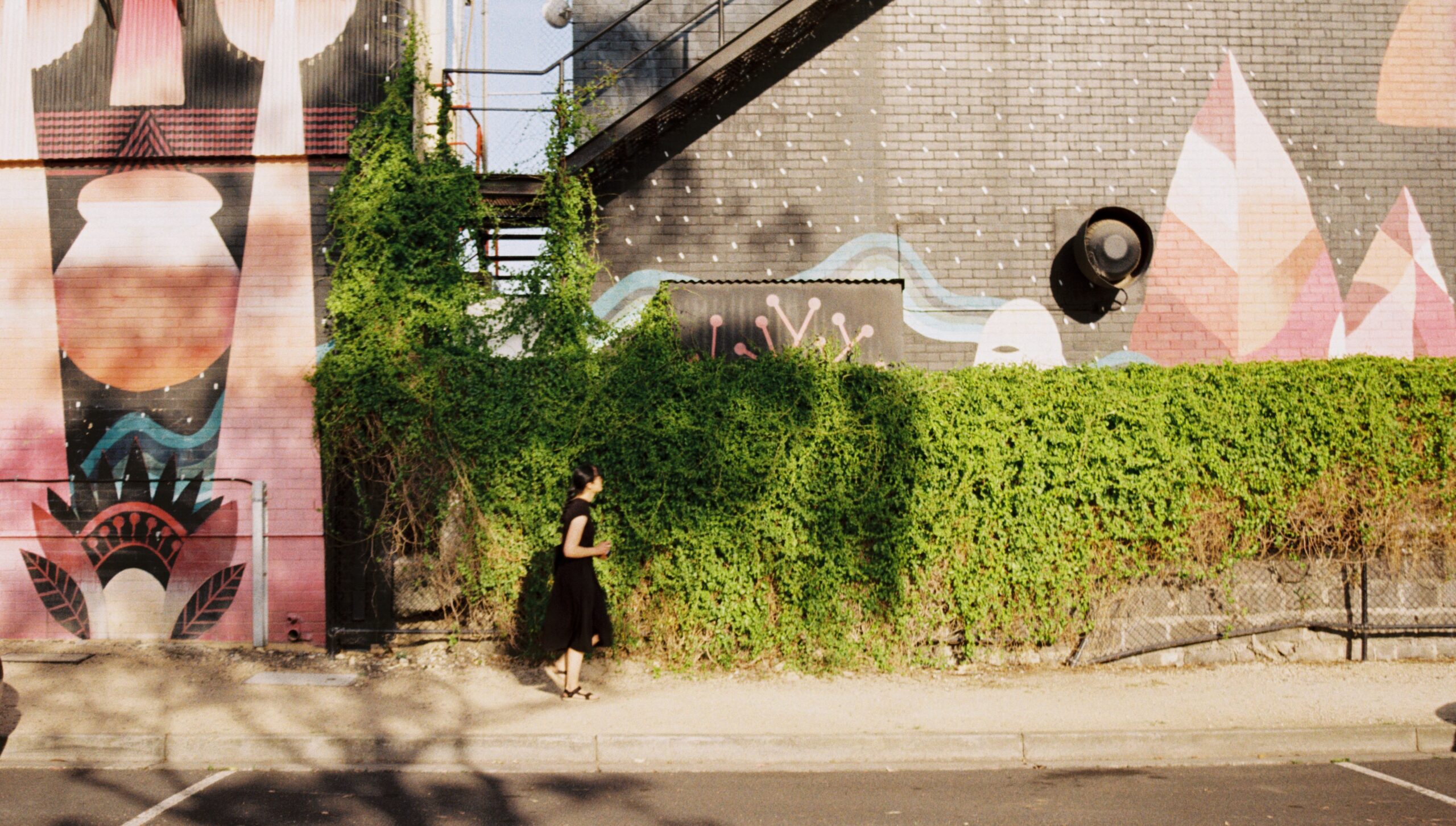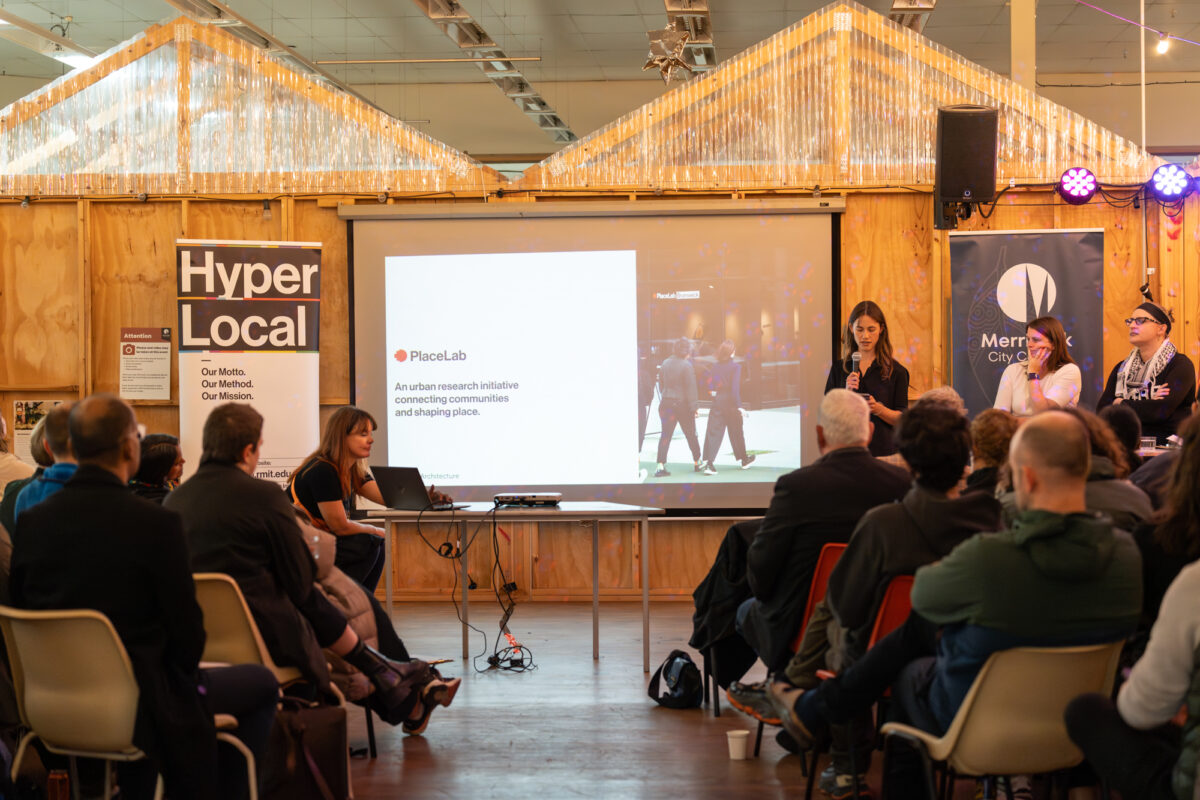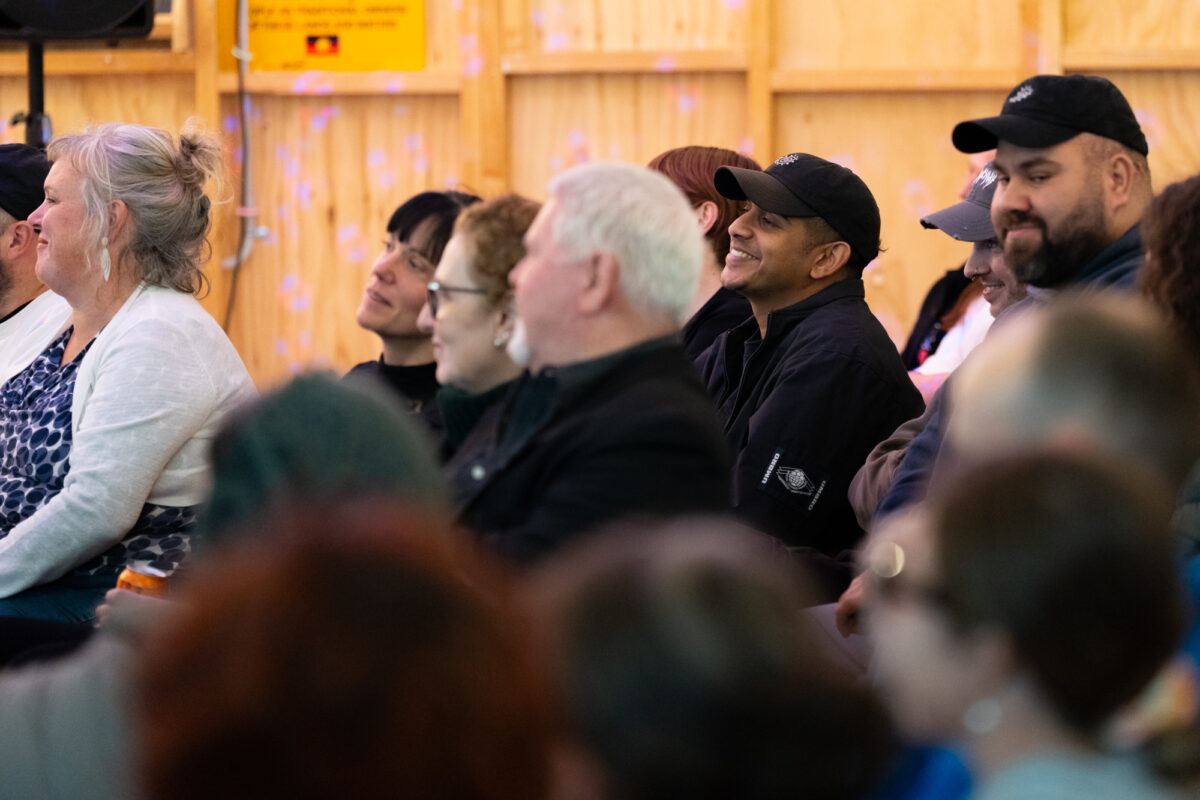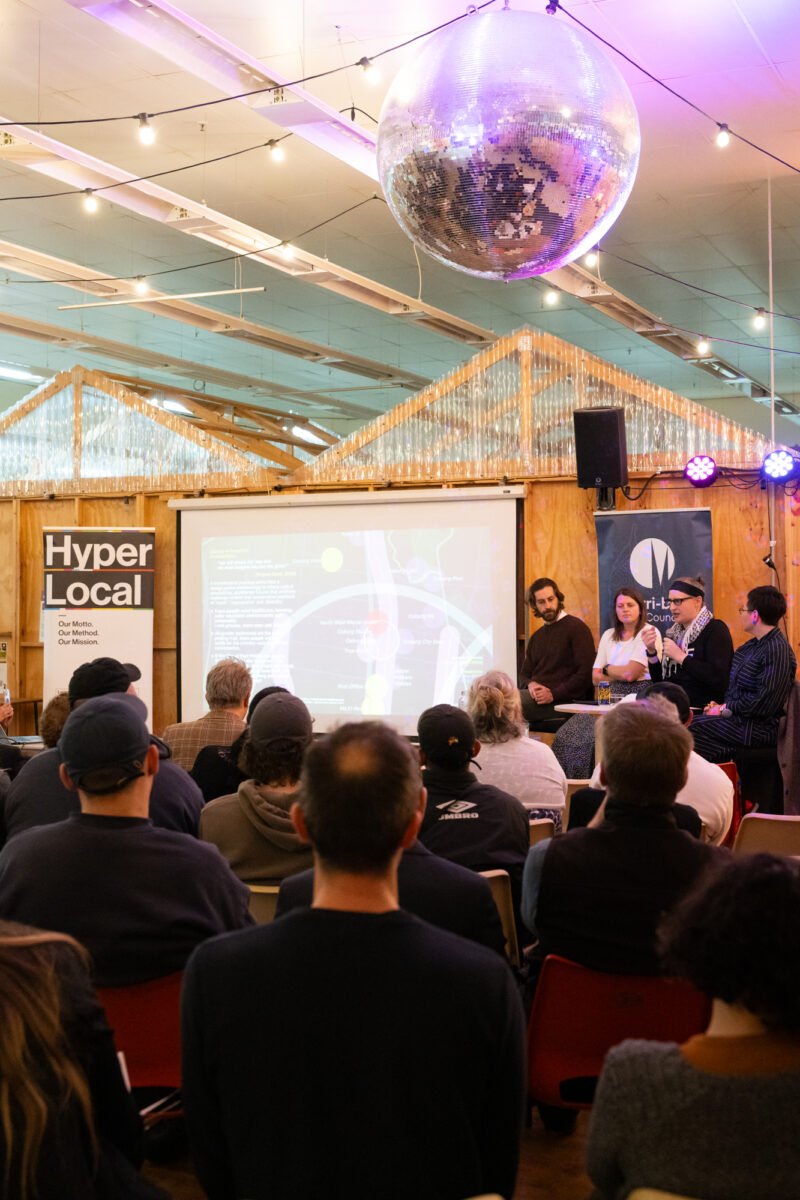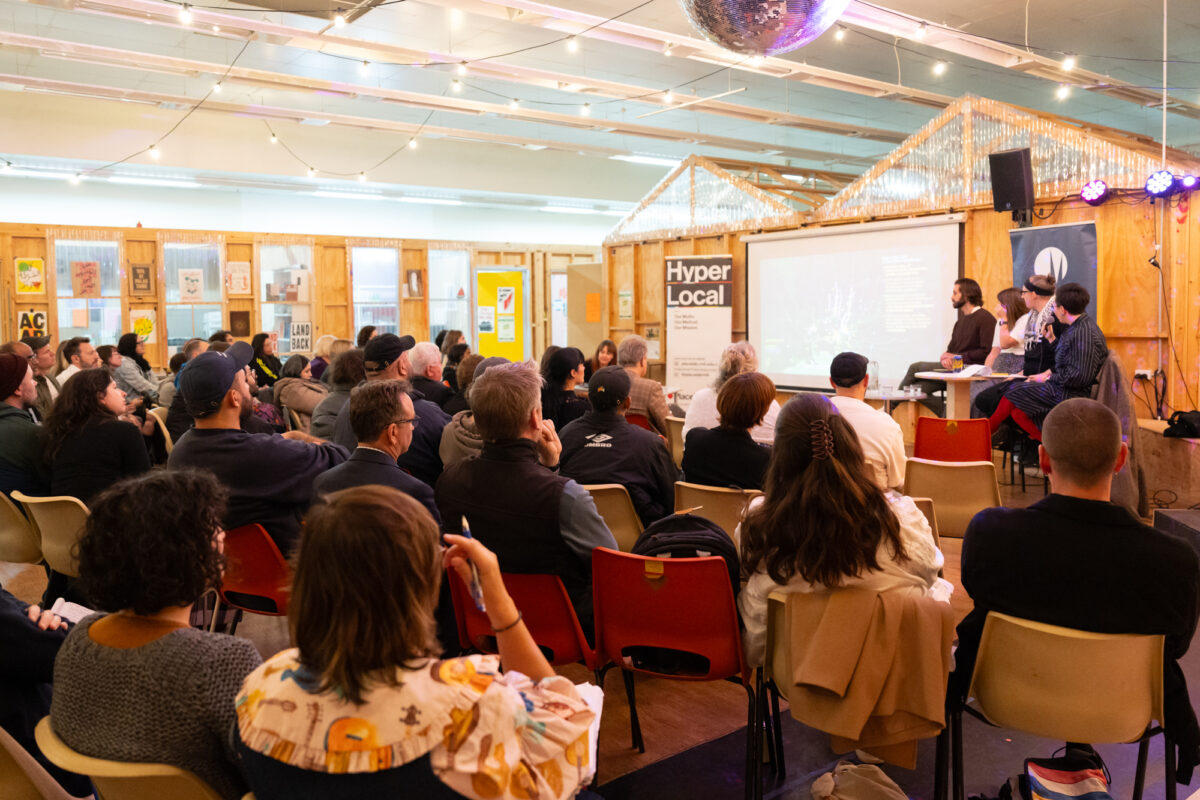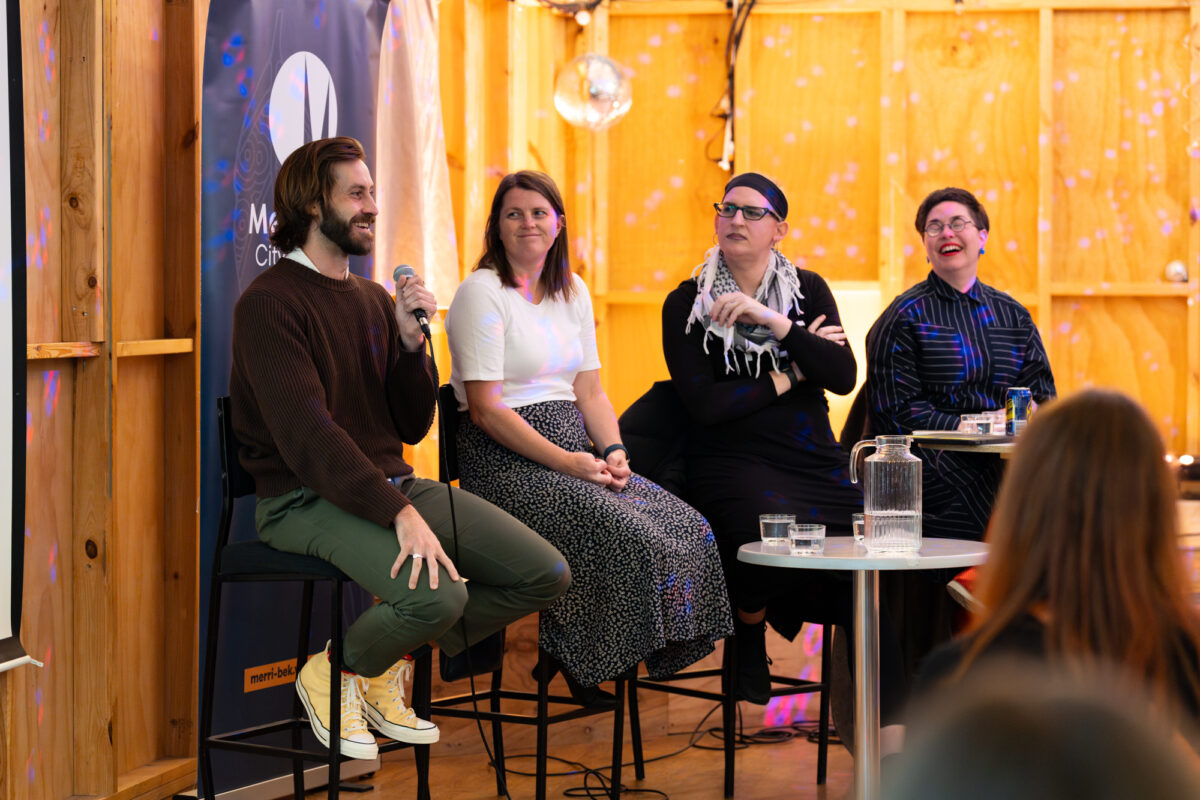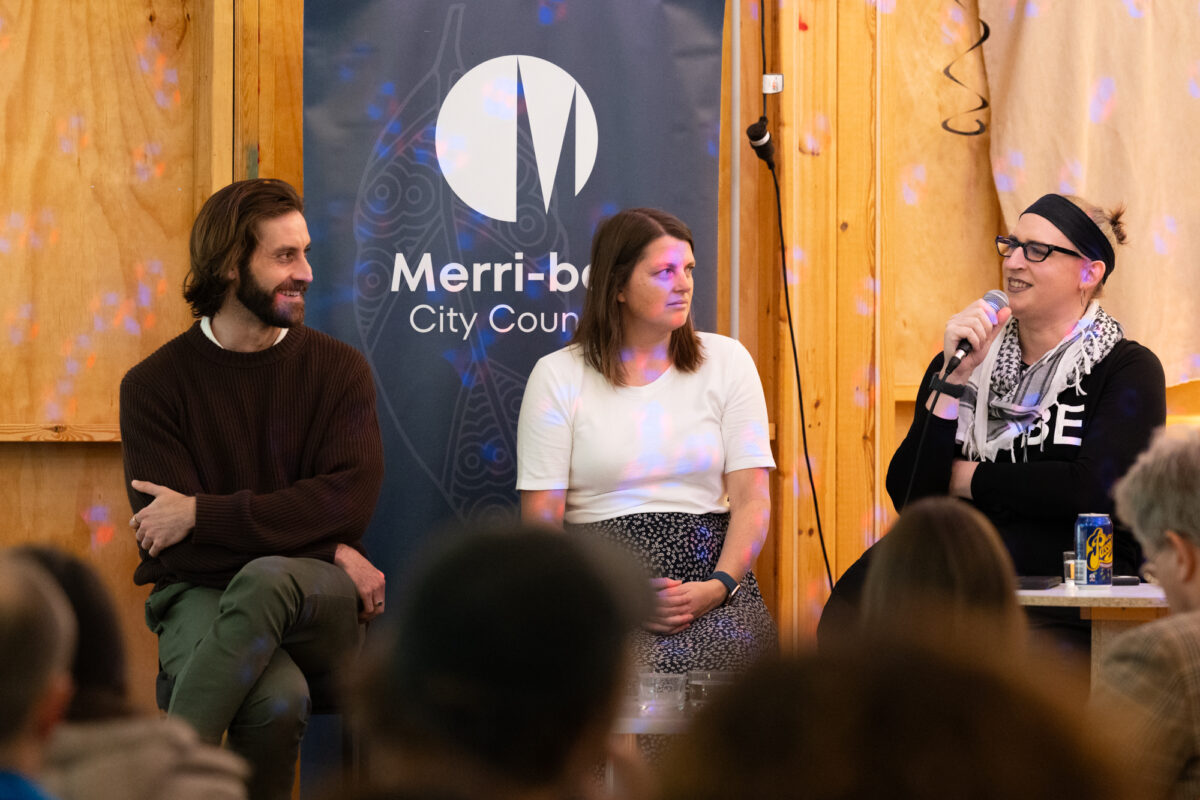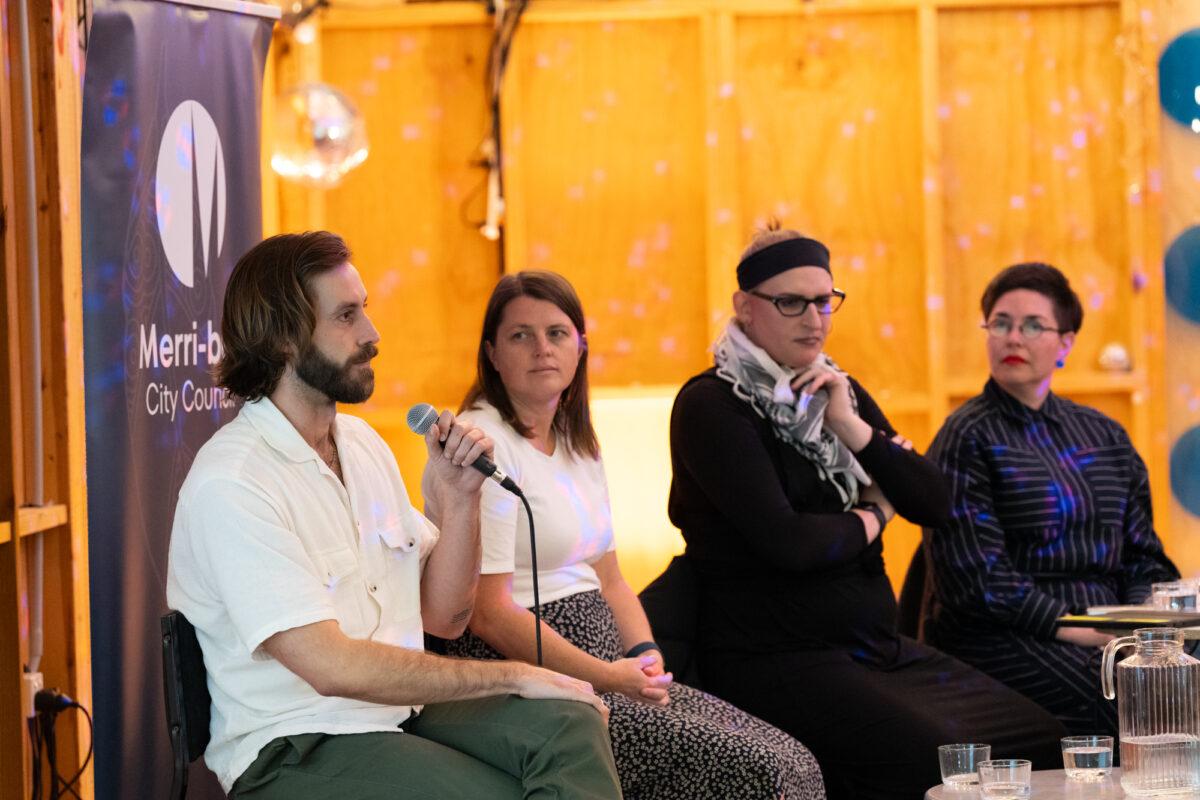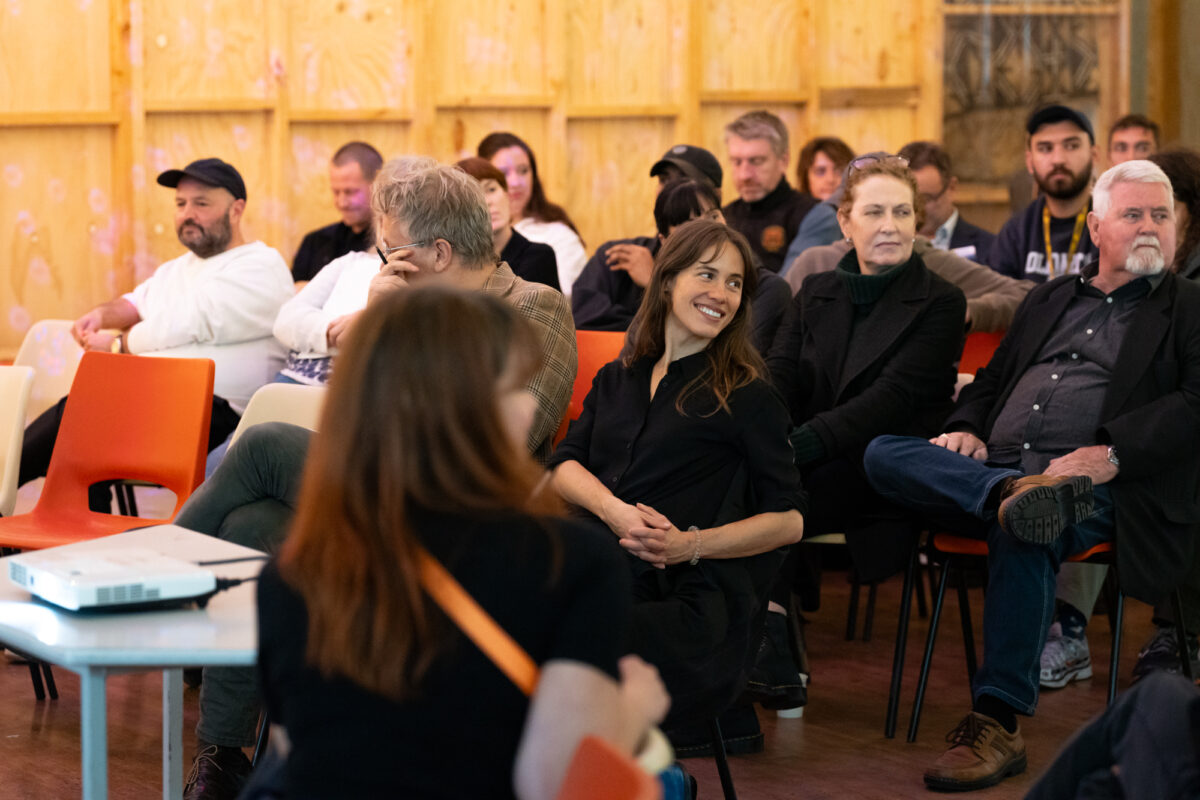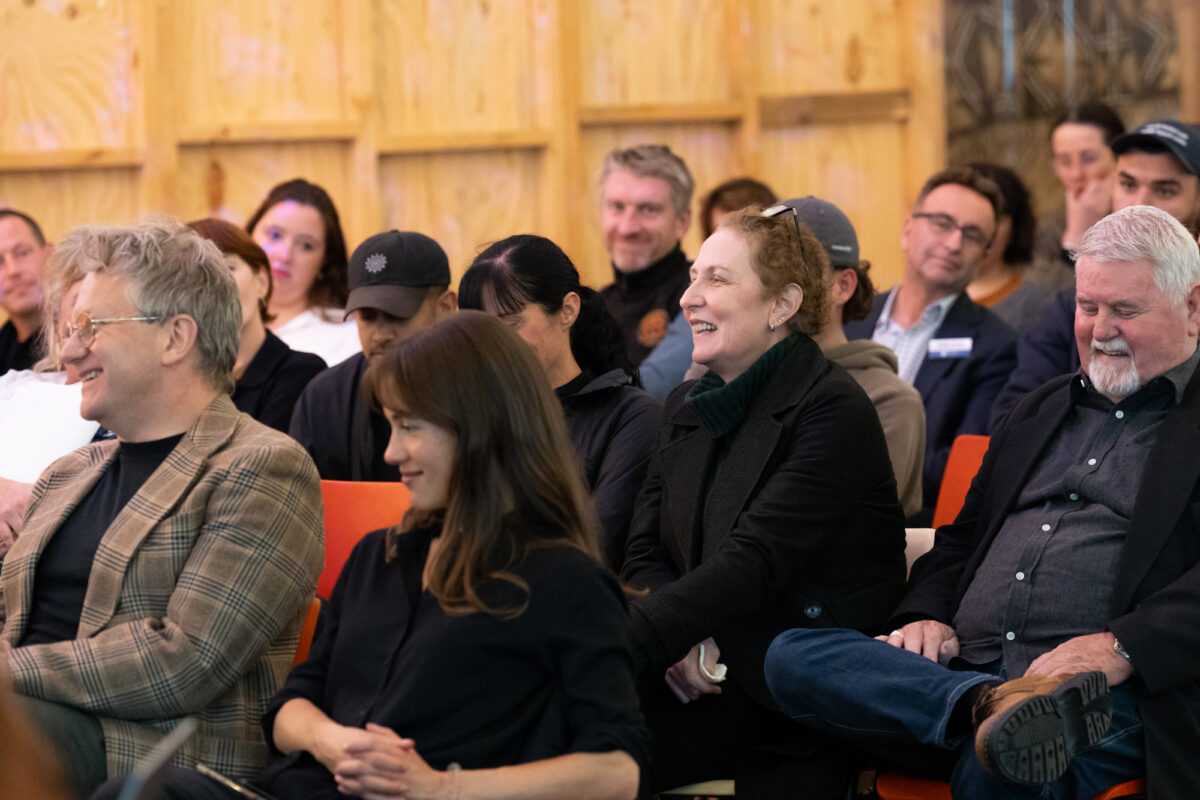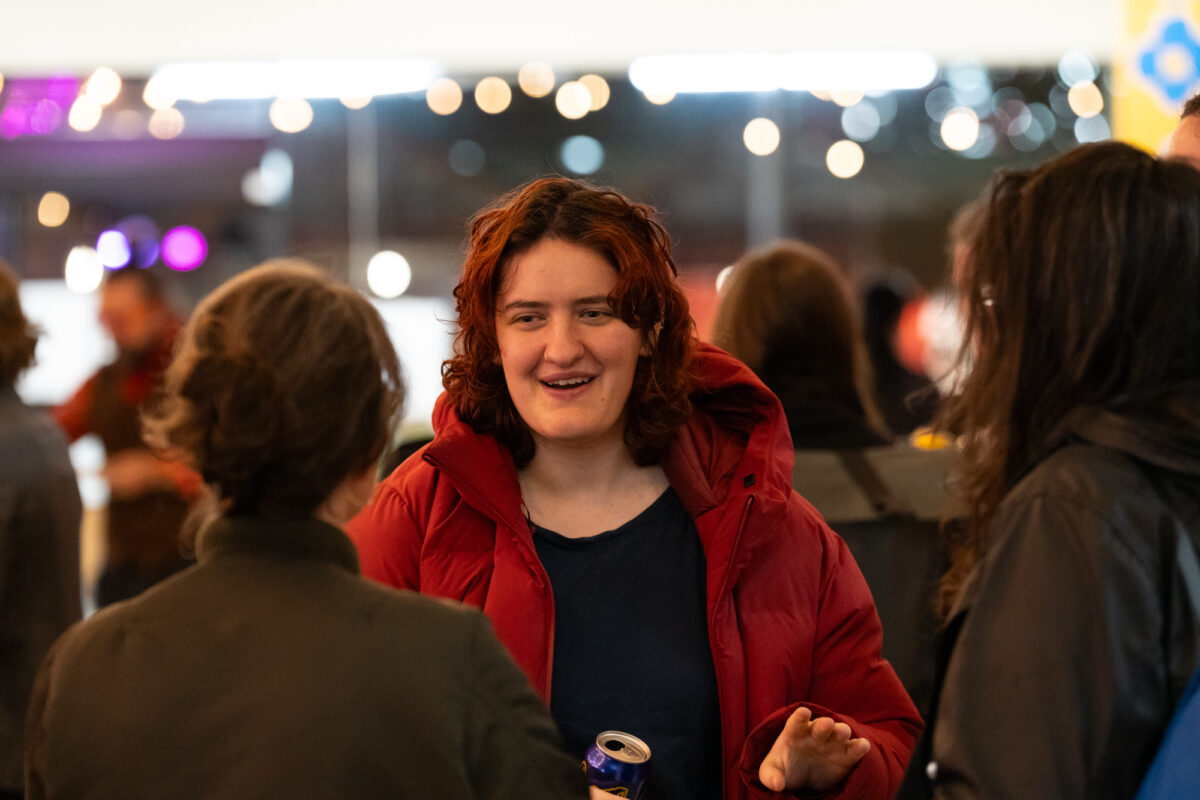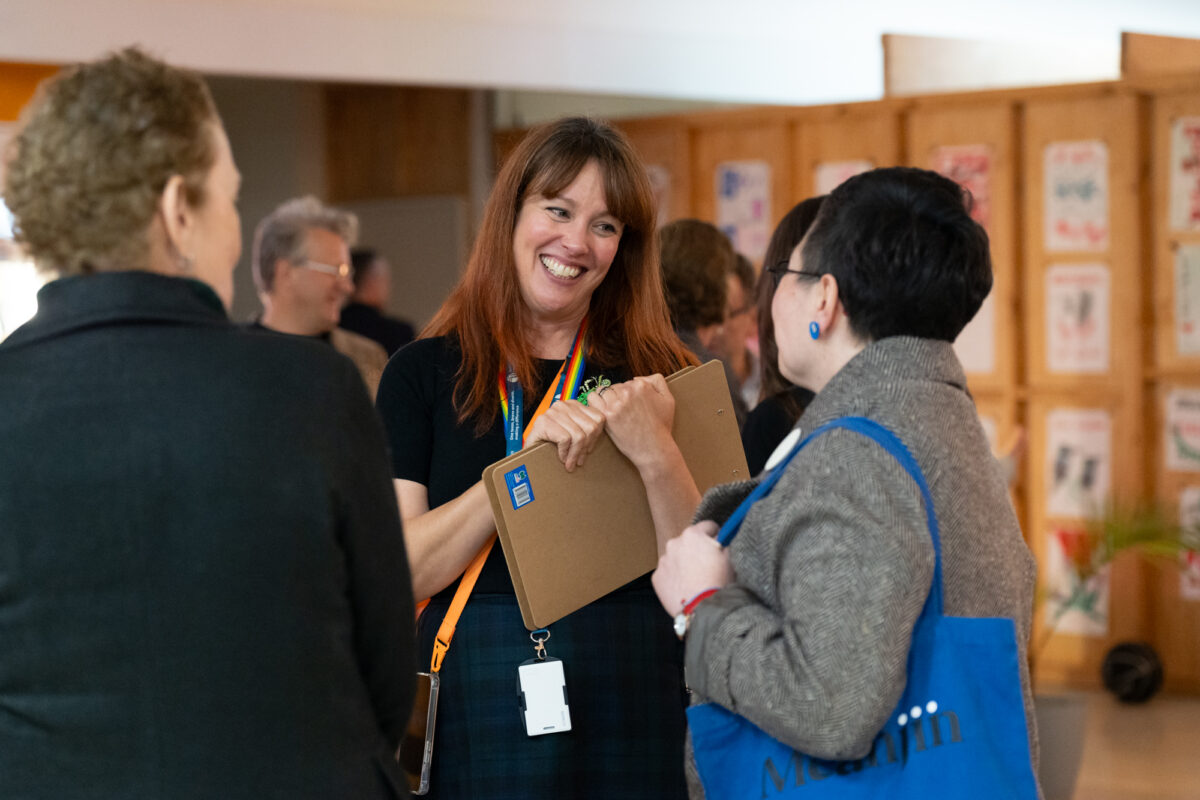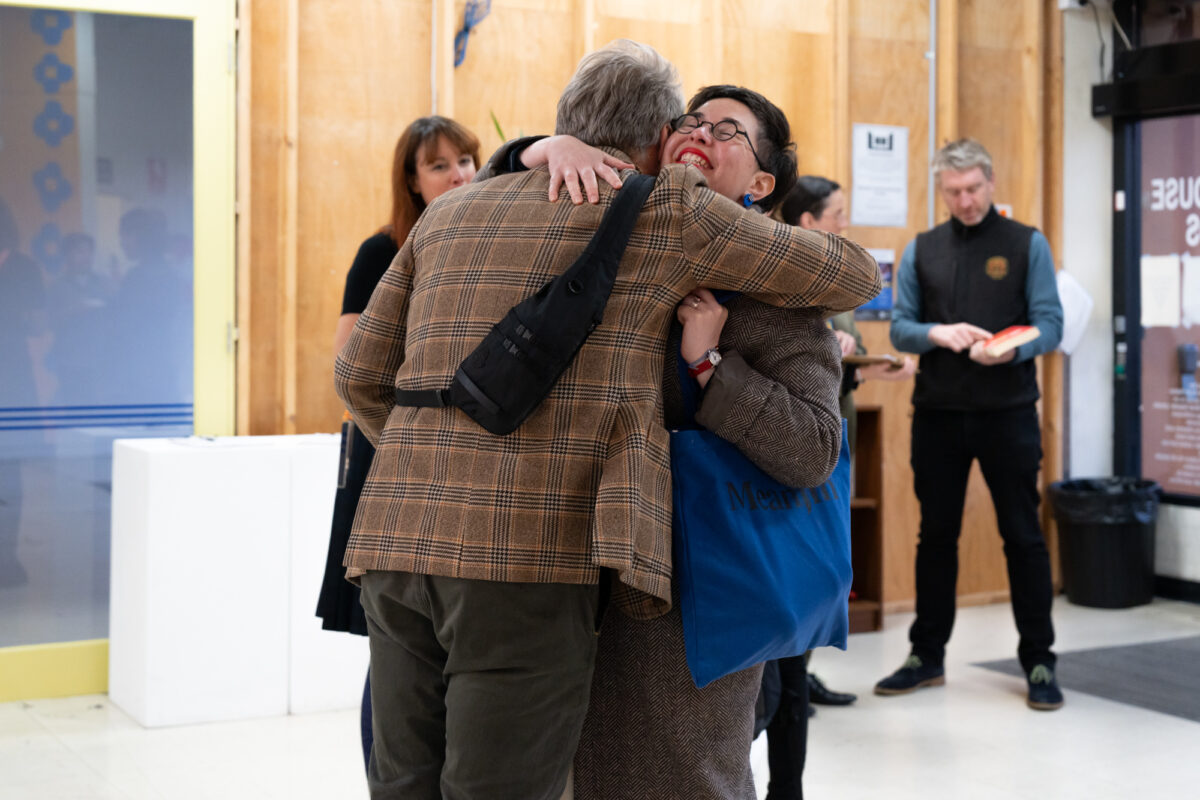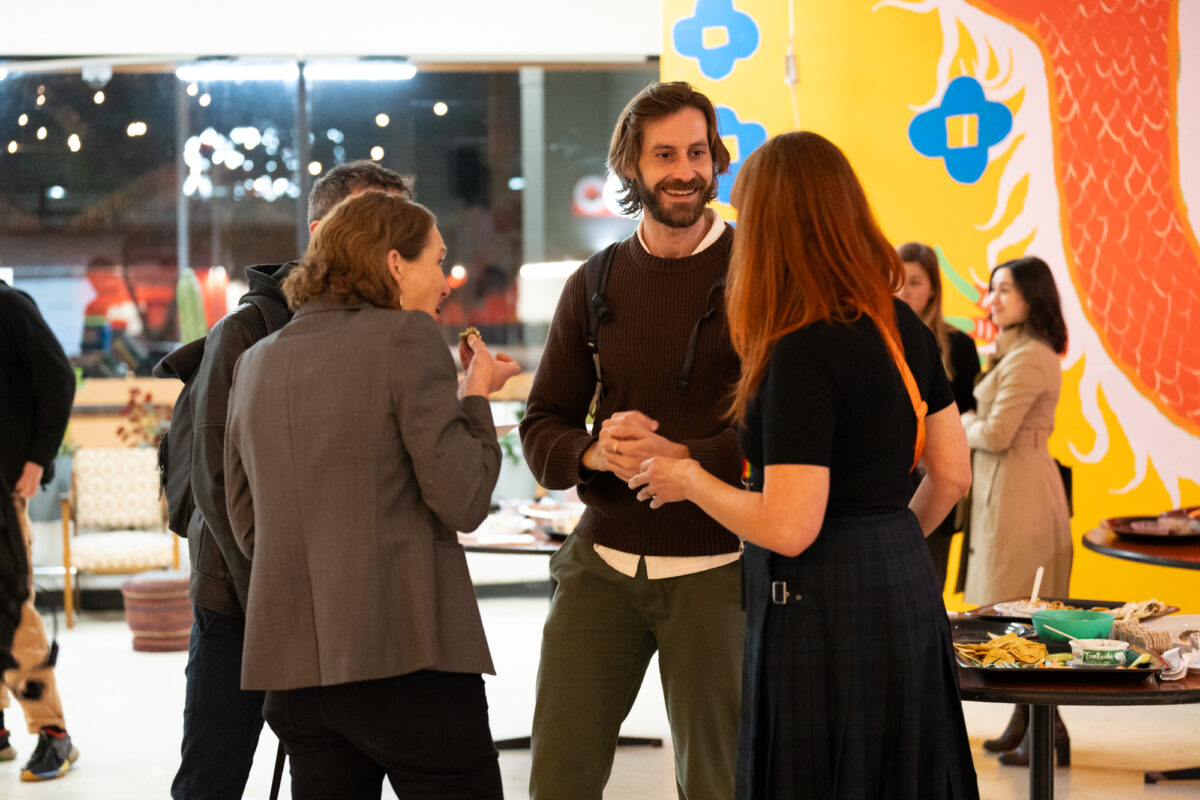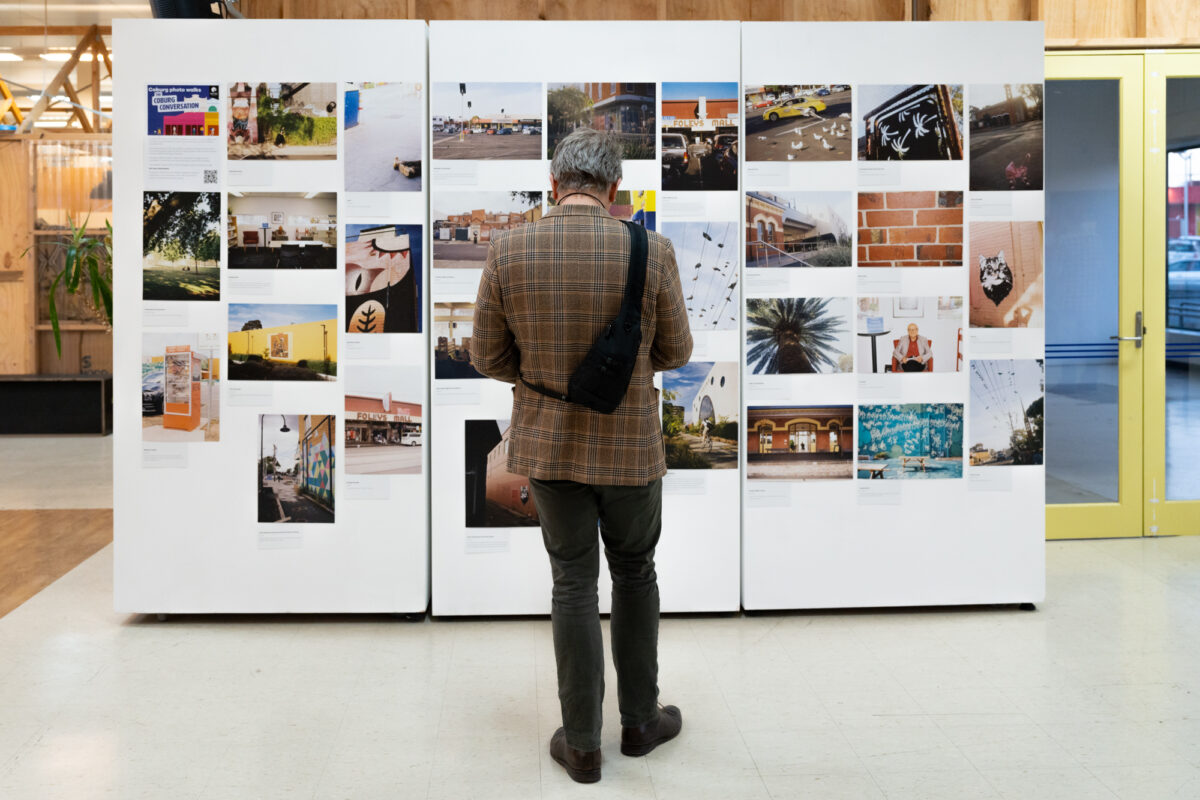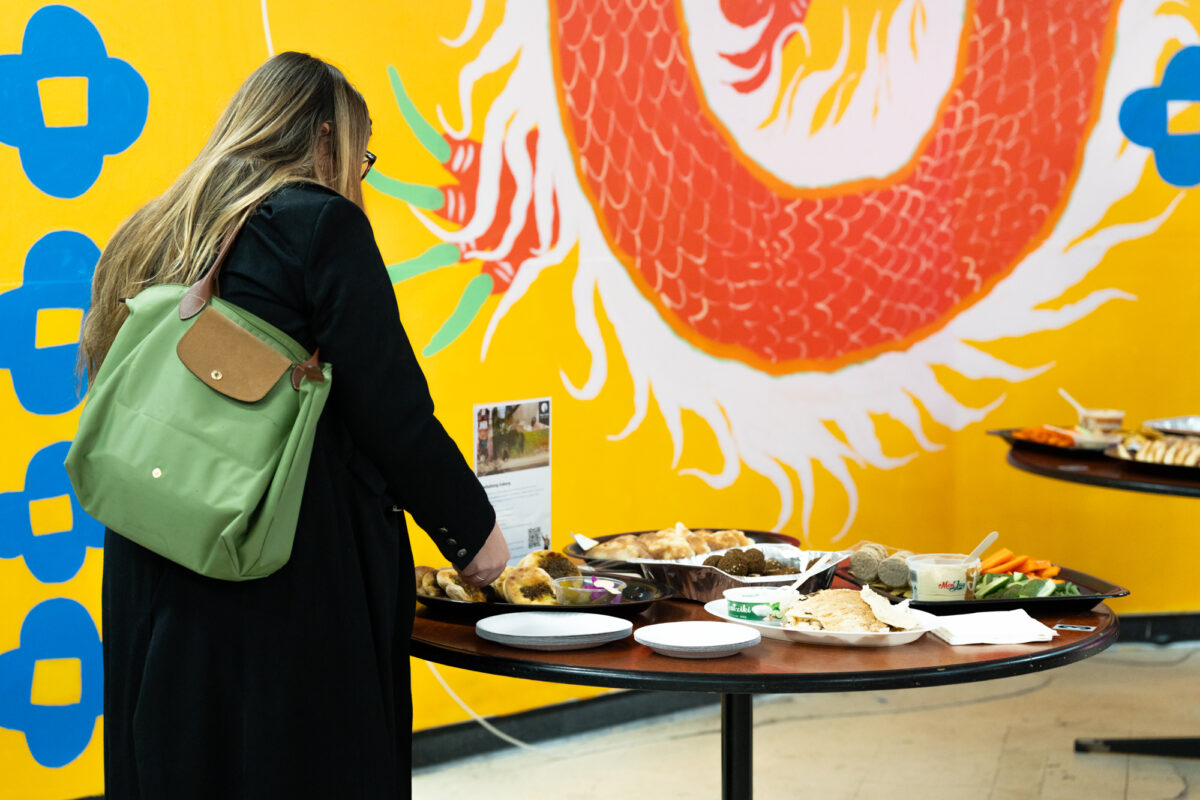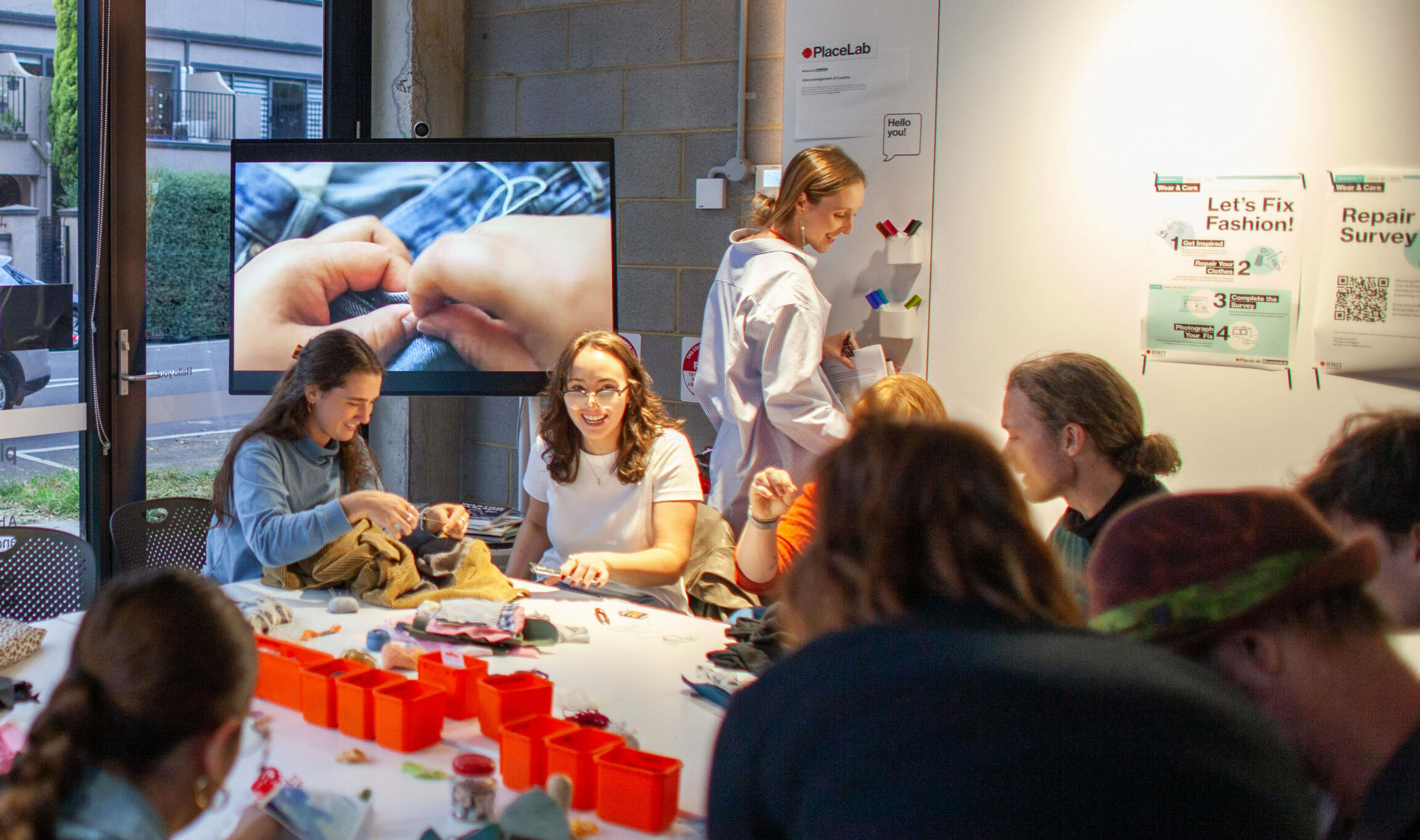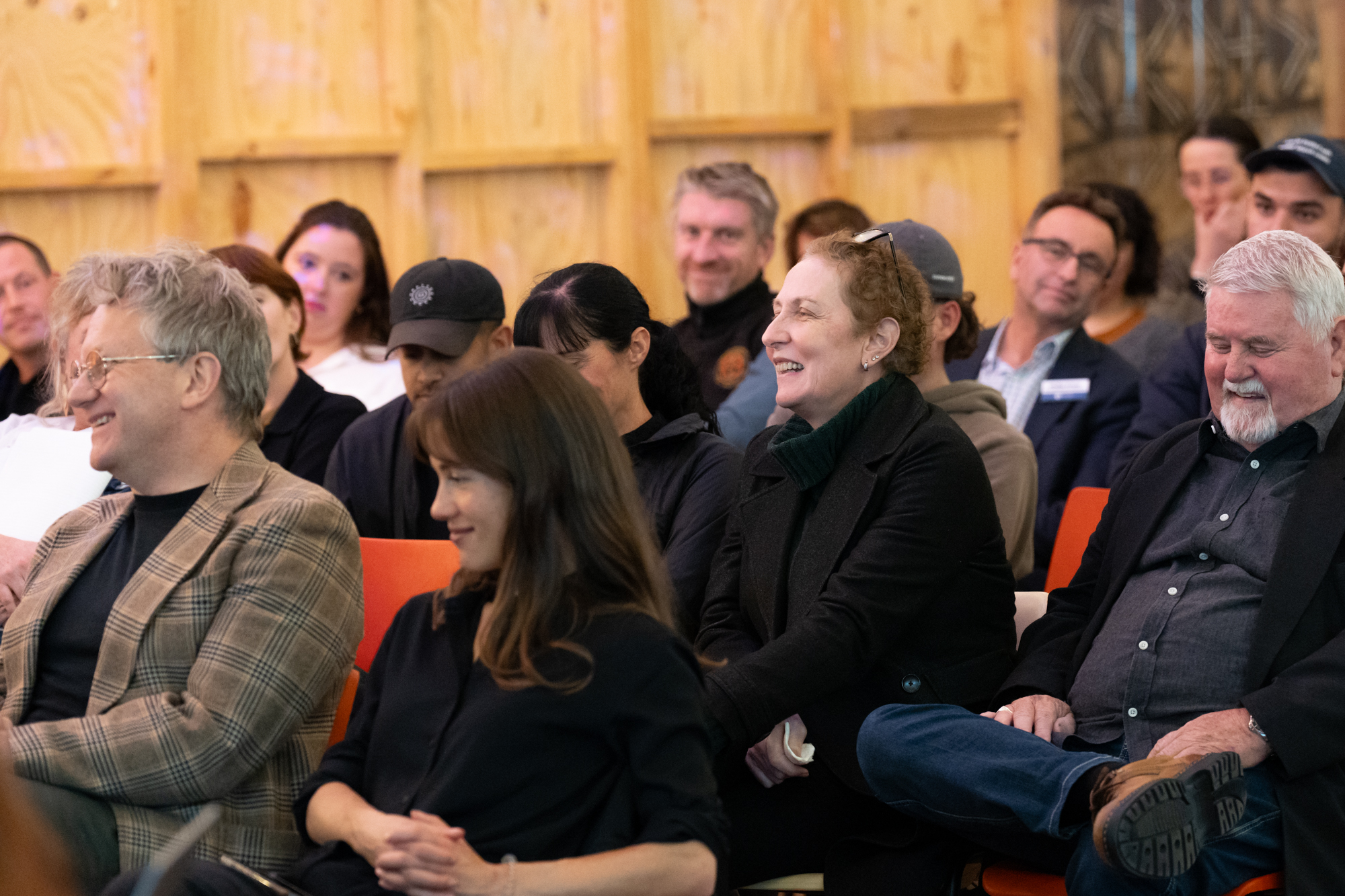
As part of our current RMIT PlaceLab Research Project – ‘Coburg Iterations’, we recently collaborated with our project and placemaking partner: Merri-bek City Council, to deliver an inspiring and insightful panel discussion – ‘Disruptive Ideas for Revitalising Coburg’.
Held on Tuesday 28th May at Schoolhouse Studios, as part of Melbourne Design Week (MDW) 2024, this conversation marked the start of the participatory design project’s activity, where we’ll aim to interrogate the way we understand place and design through a collaboration between RMIT academics, Master of Architecture students, and community members; building an understanding of how a revitalised Coburg could better support and enhance diverse public life, today and into the future.
‘Coburg Iterations’ builds on Merri-bek City Council’s current initiative – ‘The Coburg Conversation’ which aims to work with the local community and other stakeholders to consider new ways of making the heart of Coburg welcoming for all.
Hosted by Merri-bek City Council’s Mayor-Councillor Adam Pulford, the MDW event posed the question: “What is possible for Coburg if we look at its future from radically different angles?” The discussion was designed to incite new thinking and brought together a panel of ‘urban provocateurs’ to think about public space and urban design from new and often hyper-local angles.
‘Disruptive Ideas for Revitalising Coburg’ Event at MDW (Melbourne Design Week). Photos by Tilly Parsons
Panellists included:
Esther Anatolitis: Editor, Meanjin; Hon A/Prof, RMIT School of Art; and Principal, Test Pattern.
Esther is the Editor of Meanjin and one of Australia’s leading advocates for arts and culture. Her strategic consultancy Test Pattern works with arts and government bodies on cultural policy, creative space and precinct frameworks, and advocacy consortia.
Esther took on the facilitator role for the discussion, artfully drawing the panel to share their insights and brave ideas on ways Coburg could be revitalised – while also providing speculations for the audience to also consider.
Dr Simona Castricum: Architecture worker, musician, broadcaster.
Simona is a spatial designer through her practice D4TGD – Design for Trans and Gender Diverse, developing research-led design justice methodologies in gendered space. Simona is also a broadcaster on Melbourne’s 3RRR FM.
Simona spoke about the design and administration of gendered space and how trans spaces often exist and flourish as liminal spaces of opportunity on the thresholds of risk and pleasure. ‘Queerbourhoods’ – the clustering of services, community organisations and venues for LGBTQIA+ have informally developed enabling communities and community events to develop and strengthen.
Simona questioned, what do Naarm and Merri-bek’s queer/trans archives reveal about community, queer, and trans urban regeneration? And how do adjacent queerbourhoods inspire Coburg’s trans potentiality? How are the Coburg revitalisation sites in service to community? And how do we understand it and who is it for?
The panellists of ‘Disruptive Ideas for Revitalising Coburg’ Event at MDW (Melbourne Design Week). Photos by Tilly Parsons
Celeste Morgan, Australasia Integrated Water Management Lead, Arup.
Celeste is an explorer of the relationship between water and urban form. She brings together a unique blend of skills and experience in environmental engineering, urban design, and planning, that gives her a unique appreciation of how water can shape liveability.
Celeste spoke about regenerative design and nature as a co-creator. It is an approach in which human systems are designed to co-exist and co-evolve with natural systems, ensuring planetary and social health.
She suggested we consider Merri Creek as a key element within the revitalising of key Coburg sites, as the water from these places often ends up there. Cities are major water generators (stormwater, and wastewater), so we need to think about capturing, treating, harvesting, and celebrating urban water locally. She also posed whether urban heat impact could be used as a metric for mental health.
Merri-bek City Council’s Mayor – Councillor Adam Pulford also shared some of the Council’s work to date and plans for the initiative. Adam spoke about some of the key sites that will be redeveloped, noting the project is considerable and therefore will be 10 -15 years away from completion. He explained the importance of Coburg’s Library and its role as a catalyst – bringing multiple and diverse groups together to connect, share and learn.
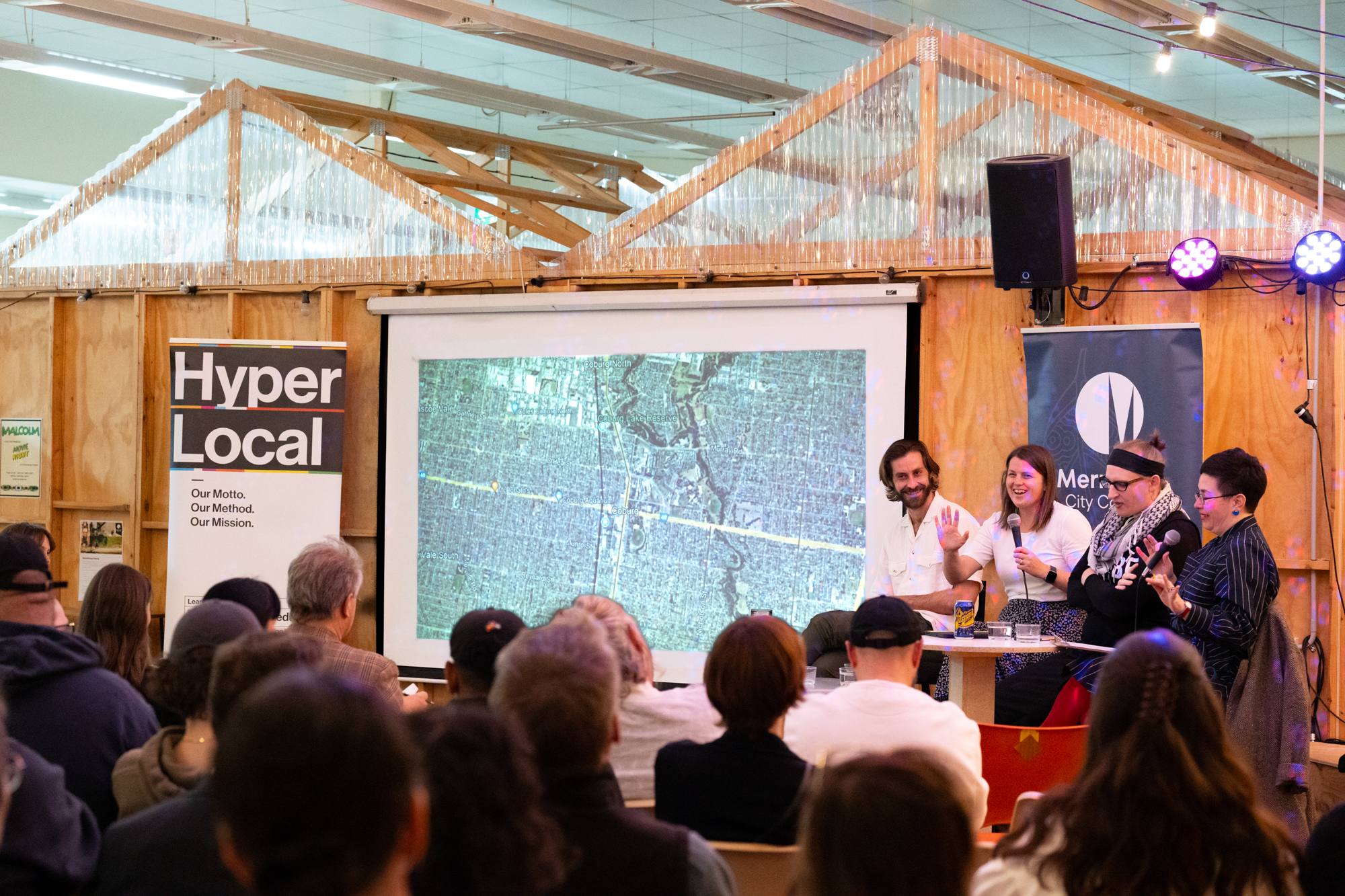
The panellists of ‘Disruptive Ideas for Revitalising Coburg’ Event at MDW (Melbourne Design Week). Photos by Tilly Parsons
There will also be activity planned around meanwhile spaces, providing ‘pop-up’ opportunities to activate and trial. Celeste suggested a pop-up urban forest could be an option. The life cycle of certain trees fits with the 10 – 15-year timeline and so could be a great way to test and understand what community think, need, and want for the space.
‘Disruptive Ideas for Revitalising Coburg’ Event at MDW (Melbourne Design Week). Photos by Tilly Parsons
It was an inspiring discussion and we’re excited to see how things develop as part of our PlaceLab Project activities.
To find out more about Merri-bek’s work to date as part of ‘The Coburg Conversation’ go to:
And stay tuned for more updates on RMIT PlaceLab’s project in support of this initiative!
Attendees at the ‘Disruptive Ideas for Revitalising Coburg’ Event at MDW (Melbourne Design Week). Photos by Tilly Parsons
